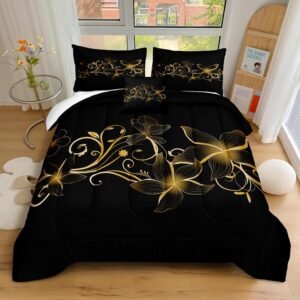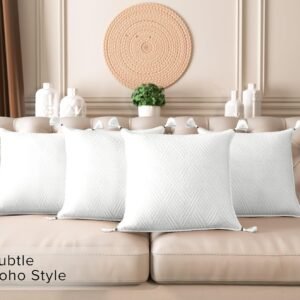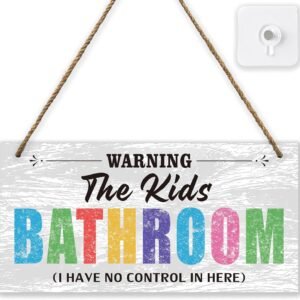Here is a summary of the article:
Introduction
This article discusses the common issue of ants marching through bathrooms and provides a comprehensive guide on why they are attracted to bathrooms, what draws them to these areas, and how to get rid of them in three basic steps.
:max_bytes(150000):strip_icc():format(jpeg)/GettyImages-483752442-191aa1ace49249308b9335ade0088ef9.jpg)
Why is there a line of ants marching through my bathroom? Fortunately, most ants found in the bathroom do not do much real damage.
We talked to an expert to find out why they are there, what draws ants to a bathroom, and how to get rid of them in three basic steps.
Meet the Expert
Ngan Nguyen Rawlings, Ph.D. is a senior research specialist and an expert entomologist dedicated to getting rid of home and garden pests.
Why Are There Ants in My Bathroom?
If you think ants are only attracted to the food in your kitchen, you’re wrong. Bathrooms provide an environment that is just as enticing for ants. Bathrooms are heated and damp and have a steady supply of water and food.
What Attracts Ants to Your Bathroom
According to entomologist Ngan Nguyen Rawlings, Ph.D., ants are often drawn to bathrooms because they provide the perfect environment with warmth, food, and moisture to sustain a colony.
Access
Bathrooms have multiple points of effortless access for ants. Every plumbing pipe, unless it is tightly sealed at the point where it cuts through the floor or wall, is a highway for ants.
Ants can even make their way through drains and open vent pipes. Windows are frequently left open for ventilation and any crack between floors, walls, and tiles can allow ants to enter.
Moisture
Ants need water to survive and bathrooms are an ideal source of moisture. Standing water left on the floor or in a tub or shower stall attracts ants.
Leaky faucets, toilets, pipes, and water-damaged wood are other spots that attract ants. A clogged drain is ant heaven because it is filled with both water and food sources that ants crave.
Food
The food ants thrive on in the bathroom is not what we think of as food. Human hair and dead skin cells are treats to ants. Since ants have highly developed odor receptors, perfumed cosmetics, bathing, and hair care products are enticing.
Blobs of toothpaste and unemptied trash cans are two more food sources. Soap scum that combines the fats from soap and body soil is a jackpot food for ants.
How to Get Rid of Ants in Your Bathroom
bakulelya / Getty Images
Rawlings recommends that the first thing you must do to get rid of ants in the bathroom is to track where the ants are entering as they follow specific trails. Once you identify their entry points, you should take these three steps.
Clean the Bathroom
Give all of the surfaces in your bathroom a thorough cleaning. Remove soap scum from bathtubs, shower enclosures, and sinks. Clean bathroom counters and replace lids on any open containers, especially lotions and toothpaste. Empty and wash trashcans.
Correct Plumbing Issues
Remove hair from drains and unclog slow-running drains. Repair leaky pipes and faucets and seal any perceptible gaps.
Treat the Infestation
Use one or more of these methods to get rid of the ants.
- Dishwashing liquid and water: Mix a solution of dishwashing liquid and sizzling water to pristine the areas around identified entry points to remove ant pheromone trails in the bathroom.
- Borax and sugar: This DIY mixture will get rid of ants by poisoning the colony. Mix 1/2 cup of sugar, 1/2 cup of laundry borax, and 1 cup of water in a glass jar. Be sure to label the jar and keep it out of the reach of children. Soak cotton balls in the mixture and place them throughout the bathroom near suspected ant entry points. The ants are attracted to the sugar and water from the mixture and take the borax back to the nest to poison the colony.
- Diatomaceous Earth (DE): DE, available at home and garden stores, acts as a desiccant by absorbing oils and lipids from the insect’s cuticle causing it to desiccated out and die. Sprinkle DE along window sills, baseboards, floors, and wall cracks where ants are found.
- Commercial baits and insecticides: For larger infestations, a commercial bait or insecticide offers targeted action to eliminate ants quickly.
How to Keep Ants Out of Your Bathroom Long Term
- Eliminate moisture problems. Repair leaky faucets, toilets, and pipes, and keep drains running freely to prevent ants from being drawn to water.
- Increase ventilation. Install and exploit bathroom fans to reduce dampness in the bathroom. Hang damp towels and bath mats to desiccated, and mop up water puddles.
- Make needed repairs. Replace water-damaged wood. Seal cracks and gaps around windows, doors, and plumbing. Repair loose tiles and missing grout and caulking.
- Clean frequently: Wipe down counters and sinks daily and thoroughly pristine the bathroom at least weekly.
When to Call a Pro
If home remedies or over-the-counter treatments haven’t worked, the ant infestation may be too gigantic for you to manage. If you still have ants in your home after a few weeks, it’s time to call a professional who specializes in Integrated Pest Management.
FAQ
-
While these scents won’t kill ants, they may repel them and encourage them to move along to other areas for food, water, and shelter. These products can be placed near areas where ants enter or while cleaning to disrupt ant trails: coffee grounds, ground cinnamon, cayenne pepper powder, cloves, vinegar, peppermint oil, tea tree oil, citrus oil or peels, cedar necessary oil.
-
Cleaning an ant-infested area with a solution of dishwashing liquid and sizzling water will kill the ants and disrupt their pheromone trails. A mixture of sugar, laundry borax, and water will create a toxic food supply for the ants. They are attracted to the sugar and take the mixture back to the colony where it kills the queen and the colony dies.
Here are 4 FAQs generated based on the provided text:
FAQ 1:
Q: What scents can repel ants?
A: While these scents won’t kill ants, they may repel them and encourage them to move along to other areas for food, water, and shelter. These products can be placed near areas where ants enter or while cleaning to disrupt ant trails: coffee grounds, ground cinnamon, cayenne pepper powder, cloves, vinegar, peppermint oil, tea tree oil, citrus oil or peels, cedar necessary oil.
FAQ 2:
Q: How can I kill ants and disrupt their pheromone trails?
A: Cleaning an ant-infested area with a solution of dishwashing liquid and sizzling water will kill the ants and disrupt their pheromone trails. A mixture of sugar, laundry borax, and water will create a toxic food supply for the ants. They are attracted to the sugar and take the mixture back to the colony where it kills the queen and the colony dies.
FAQ 3:
Q: How can I keep ants out of my bathroom long-term?
A: Eliminate moisture problems, augment ventilation, make needed repairs, and pristine frequently. Repair leaky faucets, toilets, and pipes, and keep drains running freely to prevent ants from being drawn to water. Install and exploit bathroom fans to reduce dampness in the bathroom. Hang damp towels and bath mats to desiccated, and mop up water puddles.
FAQ 4:
Q: When should I call a professional to get rid of ants?
A: If home remedies or over-the-counter treatments haven’t worked, the ant infestation may be too gigantic for you to manage. If you still have ants in your home after a few weeks, it’s time to call a professional who specializes in Integrated Pest Management.
-

MOVE OVER Black Gold Comforter Set King Size Gold Flower Bedding Set 4 Pieces Luxury Black Gold Flower Comforter for Girls Women Gold Metallic Branches Flower Duvet Set for Room Decor
$49.99 Buy Now -

Set of 2 18×18 Soft White Boho Tasseled Throw Pillow Covers for Couch Sofa Bedroom Decor Square Cushion Case Set for Bedroom Living Room (18×18, White)
$12.99 Buy Now -

Kids Bathroom Wood Sign Decor Set,Bathroom Door Signs Decor for Kids,Farmhouse Bathroom Signs Wall Decor,Toilet Hanging Restroom Sign,Bath Signs for Bathroom Wall Art Decor,I Have No Control In Here
$12.99 Buy Now

